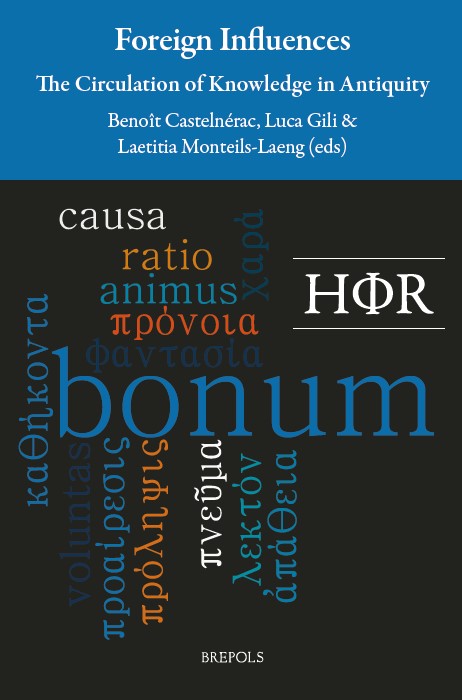

The essays collected in this volume focus on the Ancient Greeks’ perception of foreigners and of foreign lands as potential sources of knowledge. They aim at exploring the hypothesis that the most adventurous intellectuals saw foreign lands and foreigners as repositories of knowledge that the Greeks σοφοί had to engage with, in the hope of bringing back home valuables in the form of new ideas.
It is a common place to state that the “Greeks” displayed xenophobia, which is probably best exemplified in the binary and ethnocentric division of humanity in two groups: the Greek world (i.e., the hellenophones) and the others, the Barbarians – those who speak foreign languages. This attitude of insularism and defiance, however, did not hinder the curiosity of Greek and Roman societies towards strangers. Lycurgus, Pythagoras, Democritus, etc.: there is a long list of sages and philosophers who travelled around the world for a significant period of time. The Greeks had a rich and varied relationship with foreign lands and people, which made possible a real circulation of knowledge throughout the Archaic, Classical and Hellenistic times; this is also true of the Roman Empire. Each of the articles included in this collective work explore one aspect of the “stranger” as a possible source of knowledge, with contributions mostly focused on Plato, Xenophon, Democritus, Aristotle, Diogenes, Cicero and Galen.
TABLE OF CONTENTS
Foreword — Benoît Castelnérac and Laetitia Monteils-Laeng
Remarques sur les emplois stylistiques de ξένος, ξενικός et γλῶττα — André Rehbinder
Democritus, B 299 (D.K.). Alien Wisdom, Geometry, and the Contemporary Prose Landscape — Ilaria Andolfi
Étrangèreté du vrai et politique chez Platon — Étienne Helmer
Cephalus: A Role Model for the Producers in Plato’s Kallipolis — Anna Schriefl
Xenophobia in Utopia: On the Metics in Plato’s Laws — David Merry
Social Science and Universalism in Xenophon’s Oeconomicus IV — Zoli Filotas
Aristotle on the Intellectual Achievements of Foreign Civilizations — Mor Segev
Carthage: Aristotle’s Best (non-Greek) Constitution? — Thornton C. Lockwood, Jr.
Translatio, Imitatio, Aemulatio: Assimilation of Greek Thought in Cicero’s Philosophical Writings — Katarzyna Borkowska
Étrangers ou étranges ? La sagesse des confins et la connaissance du monde dans la littérature grecque des premiers siècles de l’empire — Marine Glénisson
Déterminisme environnemental et influence culturelle : la vision de l’étranger chez Galien — Julien Devinant
Le privilège philosophique de l’étranger — Isabelle Chouinard
Index of Passages
Index of Ancient Names and Places

